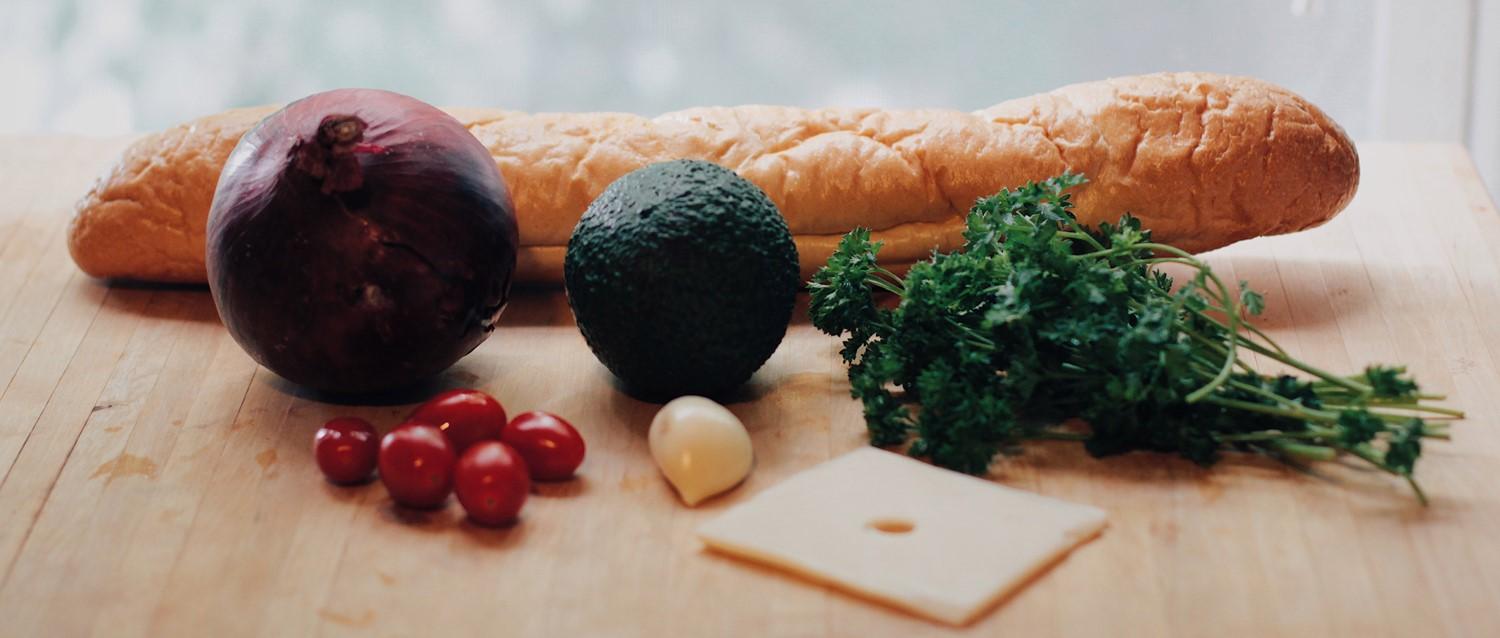
Gout diet: foods to eat and avoid
Peer reviewed by Dr Krishna Vakharia, MRCGPLast updated by Victoria RawLast updated 20 May 2024
Meets Patient’s editorial guidelines
- DownloadDownload
- Share
- Language
- Discussion
Gout is a type of arthritis, typically caused by a build-up of uric acid in the blood. When uric acid levels build up, it can cause crystals of uric acid to be formed, which deposit in joints and cause irritation, inflammation and swelling. This is known as a gout attack, which can be very painful.
High levels of uric acid in the blood could be due to several reasons. It may be a result of the kidney's reduced ability to clear the uric acid. It may be an overproduction of compounds that break down uric acid (purines). It may be a combination of both.
In this article:
Video picks for Arthritis
Gout diet: what's allowed and what's not
While medications are key factors in the management and treatment of gout, dietary factors can also play an important role. Following dietary advice may or may not accompany medications, but it can help to stabilise levels of uric acid in the blood. This can decrease the likelihood of gout attacks.
What can you do to prevent attacks of gout?
Back to contentsAchieve a healthy weight
Obesity may be a prime focus in lowering levels of uric acid in the blood. Insulin resistance is commonly seen in those who are obese and it could play a role in the development of gout. Insulin resistance has been shown to decrease the amount of uric acid that is cleared in the urine.
A condition known as the 'metabolic syndrome' is a cluster of symptoms which includes insulin resistance, along with tummy (abdominal) obesity, high blood pressure and abnormal blood fats (lipids) - for example, high cholesterol. This condition can raise uric acid levels, which can be improved with slow, gradual weight loss.
Weight loss has been shown to help combat insulin resistance and therefore reduce uric acid levels in the blood. However, it is important to avoid strict diets such as low-carbohydrate and high-protein diets as these may cause high purine levels.
Additionally, rapid weight loss through strict dieting can result in breakdown of tissue. This can temporarily raise uric acid in the blood. A gradual, safe weight loss of 1-2 lbs a week can help to achieve an optimal body weight.
Reduce alcohol
Drinking too much alcohol has been associated with gout for many years. However, it is uncertain how it may be related. Some types of alcohol, particularly beer, contain high purine levels, which could be an indirect cause of gout.
Alternatively, heavy drinking may trigger gout by prompting weight gain. Alcohol contains 7 calories per gram and so drinking too much alcohol can contribute to obesity.
There is a greater chance of developing gout attacks from drinking beer compared to spirits. Wine drinking in moderation has no associated impact. However, if you choose to drink alcohol, drinking in moderation is advisable.
Both men and women should drink no more than 14 units of alcohol per week. These units should be spread out through the week, which should contain at least two alcohol-free days.
A unit of alcohol is:
One 25 ml shot of spirits.
Half a pint of standard-strength lager/beer - 3-4% alcohol by volume.
One small 125 ml glass of wine - 11% alcohol by volume.
Higher-strength alcoholic beverages will contain more units. For example, a pint of a higher-strength beer (5.2% alcohol by volume) is 3 units, and a small 125 ml glass of wine (12% alcohol by volume) is 1.5 units.
Keep hydrated
Ensuring a sufficient fluid intake helps to lower the odds of crystals forming in joints. Staying hydrated and avoiding lack of fluid in the body (dehydration) can reduce this chance and help to prevent gout attacks. Aim to drink at least 2 litres per day - 8 large glasses of water. However, you may need as many as 3-3.5 litres per day depending on your weight, whether it is hot, or whether you exercise.
Reduce your purine intake
Purines are natural compounds found in many foods. When purines are metabolised, the body breaks them down, resulting in uric acid. Therefore, minimising purine-rich foods, particularly if they are regularly consumed, may help to prevent attacks of gout.
Reduce red meat - particularly beef, pork and lamb - poultry and seafood, as these are primary sources of purines. Aim to have no more than one serving of any meat - including poultry - or fish per day. It may be helpful to have 1-2 meat-free days each week.
To make sure you are getting enough protein, include meat-free sources of protein such as eggs, low-fat dairy products, tofu, cheese, nuts or pulses, because these have a lower purine content. Evidence suggests that plant-based foods appear to be a safe option for gout management, despite having a higher purine content.
There are certain foods that have very high purine levels and should be considerably limited, if not avoided completely. These include:
Meat Sources | Liver, heart, kidney, sweetbreads, ox, game (eg, venison, pheasant, rabbit). |
Fish Sources | Anchovies, crab, fish roes, herring, mackerel, trout, sardines, shrimps, sprats, mussels, scallops, whitebait. |
Other Sources | Yeast tablets and extracts (eg, Marmite, Bovril, Oxo), beer, high fructose corn syrup. |
Limit sugary foods/sweetened foods
Overindulging in these foods can lead to weight gain and obesity. Additionally, sugary foods, sugary soda drinks and snacks often contain fructose or what might be labelled as high-fructose corn syrup/glucose-fructose syrup.
A high intake of fructose can increase uric acid levels in the blood and may increase insulin resistance. These are both contributing factors for developing gout, so aim to limit these foods.
As well as biscuits, cakes, sweets, fruit juices and sugary drinks, high-fructose corn syrup can be found in unexpected foods. These include:
Bread.
Yoghurts.
Frozen pizzas.
Cereals and cereal bars.
Jarred sauces.
Some condiments such as jams, ketchup, mayonnaise or salad dressings.
Check labels to compare products and choose fresh ingredients rather than processed foods when possible.
Although fruit contains fructose it should not be limited. This is because fruit is not a concentrated form of fructose. When eaten whole it contains fibre, and protective vitamins and minerals such as potassium, vitamin C and other antioxidants, which are otherwise lost in processing.
Continue reading below
Which foods are the best to eat for gout?
Back to contentsA healthy balanced diet can help achieve and maintain a healthy weight. It can also provide energy and nutrients sufficient for optimal health, with less likelihood of gout attacks.
Include daily:
Plenty of fruit and vegetables
The recommendation for people with gout is five portions per day, but try to include as many as possible. Bulking out meals, such as bolognese, casseroles and stews with vegetables can help to reduce the meat content.
Fruit and vegetables contain vitamin C. Although evidence is unclear, high intakes of vitamin C - 500 mg or more - may help to reduce uric acid levels in the blood. Cherries and sour cherry juice may be particularly useful to include in the diet, as they have also been found to reduce levels of uric acid in the blood.
Some starchy carbohydrates
These may include rice, potatoes, pasta, bread, couscous, quinoa, barley or oats. Wholegrain varieties are best as they contain more fibre and nutrients and help to contribute to a healthy diet. These foods contain only small amounts of purines, so are unlikely to trigger gout attacks.
Some meat, fish, eggs, beans and pulses
Eat these foods in moderation. Having vitamin C with meals can help improve the absorption of iron, so drink a small glass of orange juice, have a piece of fruit for dessert, or serve up meals with plenty of vegetables.
Keep your portions of meat controlled by using your hands as a serving size guide. A serving is about the size and thickness of the palm of your hand.
Some milk and dairy products
Including low-fat dairy products - such as skimmed milk, low-fat yoghurt and low-fat cottage cheese - may help prevent high levels of uric acid in the blood. These foods are a good source of protein and also have a low purine content so are useful additions to meals if you are trying to reduce meat - including poultry - and fish intake.
Summary
Back to contentsReducing the amount of uric acid levels in the blood can help to prevent gout attacks. This can be done by:
Achieving a healthy weight.
Limiting alcohol.
Avoiding/reducing foods high in purines.
Drinking plenty of fluid.
Limiting foods sweetened with fructose.
Eating plenty of fruit and vegetables.
Consuming low-fat dairy products.
Patient picks for Arthritis

Bones, joints and muscles
What's the difference between osteoarthritis and rheumatoid arthritis?
The most common types of arthritis are osteoarthritis and rheumatoid arthritis. The former is caused by wear and tear of your joints, while the latter is an autoimmune disease that affects otherwise healthy joints. How can you tell them apart?
by Amberley Davis

Bones, joints and muscles
What it's really like to live with gout
Nobody knows what a condition really feels like unless they experience it themself. This applies to the medical profession as much as anyone else, with the added bonus that doctors who have 'got the T-shirt' are in a good position to empathise with other members of the Gout Club. Here is the story of my life with gout, some advice from experts, and a look towards the future.
by Dr Laurence Knott
Continue reading below
Article history
The information on this page is peer reviewed by qualified clinicians.
Next review due: 20 May 2027
20 May 2024 | Latest version
11 Sept 2017 | Originally published
Authored by:
Dr Colin Tidy, MRCGP

Ask, share, connect.
Browse discussions, ask questions, and share experiences across hundreds of health topics.

Feeling unwell?
Assess your symptoms online for free
Sign up to the Patient newsletter
Your weekly dose of clear, trustworthy health advice - written to help you feel informed, confident and in control.
By subscribing you accept our Privacy Policy. You can unsubscribe at any time. We never sell your data.